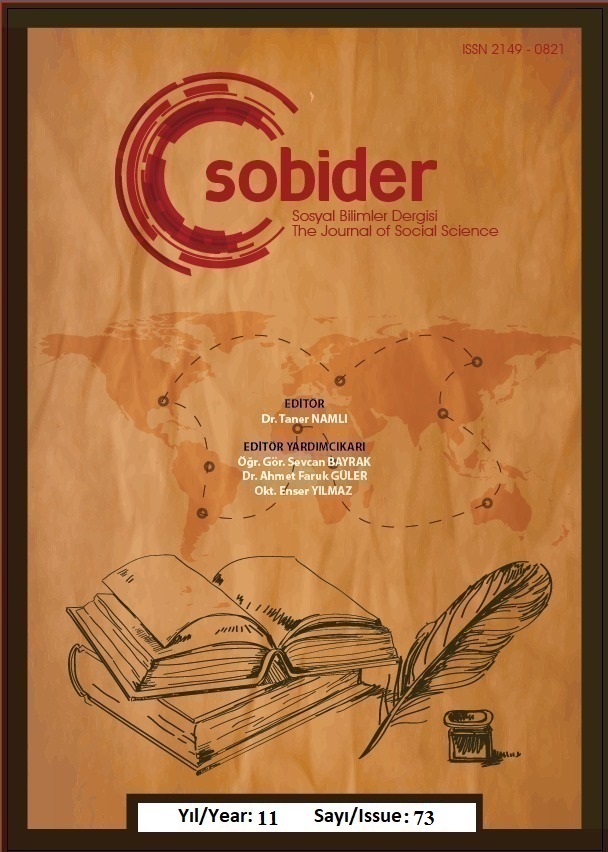Author :
Abstract
Halk oyunları, var olduğu toplumun sosyokültürel değerlerini yansıtan, menşei itibariyle din ve büyü ile ilgili olan müzikli ve hareketli figürlerden oluşan ritmik oyunlardır. Ülkelerin, şehirlerin veya yörelerin müzik aletleri, figürleri ve kıyafetleri ile bir bütün olarak toplumsal yapısını, kolektif ruhunu içinde barındıran kültürel zenginliklerinden biridir.Türk halk oyunlarının geneline bakıldığında Orta Asya ve İslam kültürünün etkisinde oluştuğu görülmektedir. Şamanizm ve tabiat kültünün korunduğu araştırma alanımız Tunceli ilinde halk dansları, Türk halk oyunları içinde özel ve önemli bir yere sahiptir. Çalışmada Tunceli halkının, kadim dönemlerden günümüze taşıdıkları halk oyunlarını derlemek; oyunlarda unutulmaya yüz tutmuş inanç, etnik yapı ve gelenek-göreneklere bağlı unsurları tespit ederek bu unsurların kayıt altına alınmasını sağlamak, ata kültünün parçası olan oyunları gelecek nesillere taşımak ve değerlerimizin yaşatılmasına katkıda bulunabilmek amaçlanmıştır. Elde edilen bulgular doğrultusunda çalışma kapsamını sınırlandırmak için Tunceli halk oyunları içinden hikâyeli, türkülü ve tiyatral oyunlar ele alınmış; bu oyunların icra edildikleri ortamlarla ilişkileri, yapısal ve sosyokültürel öğeleri halk bilimi açısından incelenmeye ve değerlendirilmeye çalışılmıştır.
Keywords
Abstract
Folk dances are rhythmic games consisting of musical and moving figures that reflect the sociocultural values of the society in which they exist and are related to religion and magic in origin. It is one of the cultural riches of countries, cities or regions, containing their social structure and collective spirit as a whole, with their musical instruments, figures and clothes. When we look at Turkish folk dances in general, it can be seen that they were formed under the influence of Central Asian and Islamic culture. In our research area, Tunceli province, where shamanism and nature cult are preserved, folk dances have a special and important place among Turkish folk dances. In this study, we compile the folk dances that the people of Tunceli have carried from ancient times to the present day; It is aimed to identify elements related to beliefs, ethnic structures and customs that are about to be forgotten in the games and to ensure that these elements are recorded, to carry the games that are part of the ancestor cult to future generations and to contribute to the survival of our values. In order to limit the scope of the study in line with the findings obtained, narrative, folk song and theatrical dances among Tunceli folk dances were discussed; The relationships of these dances with the environments in which they are performed and their structural and sociocultural elements have been tried to be examined and evaluated in terms of folklore.





